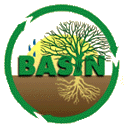
Mark Losleben - CU INSTAAR Research Staff
 |
|
Mark Losleben - CU INSTAAR Research Staff |
The following snowpack conditions on Niwot Ridge have been reported by Mark Losleben for January 2003. Select here for more information about these snowpack reports
Unfortunately, the early season heavy snowpack continues to dwindle through January. Hand measurements show the January snowpack at C1, Niwot Ridge, increased by only 1.25 inches snow water equivalent (SWE) this month, which is a 6% drop since the end of last month. However, it is an increase of 124% compared to the same time last year!On 31 January 2003, the C1 snowpack was 21 1/8" deep, containing 5.25" SWE which is 64% of the 1982-2002 average. This is the fourth lowest January 31st snowpack since 1982. Although snowack has been decreasing since November, it is helpful to remember that the seasonal snowfall at C1 has a bimodal pattern (two maximums, a smaller one in the late fall, and the larger one in the spring, with minimum snowfall in the middle winter months). This means spring snowfalls have the potential to recover much of the recent decline.
Weather patterns that have brought snow to C1 this month can be characterised as mainly zonal, or strong westerly airflow, rather than well formed low pressure storms. Such patterns typically produce small amounts of snowfalls quasi-daily, in contrast to less frequent large snowfalls associated with the low pressure type storm systems. In some years, this pattern is enough to keep the snowpack healthy (closer to average), but apparently not this year, at least not so far. Statewide the snowpack has also declined this month, according to the NRCS SnoTel network. The decline is 12% in the wettest drainages (northern west and central basins), and about 22% in the driest (SW Colorado). The Upper Colorado basin has the highest percent of average snowpack, 79%, with the Yampa/White (77%), and Laramie/N.Platte(76%) close behind. The Upper Rio Grande has the lowest, 58%, and the San Miguel/Dolores/San Juan second lowest with 64%. These SW Colorado basins suffered the largest decline since last month, however they are wetter than this time last year when the Upper Rio Grande was at 48%.
Our South Platte basin is at 66% of average SWE, and 79% of average cummulative winter precipitation to date. This 13% difference means there is less water in the snowpack than expected given the amount of precipitation recieved, relative to average conditions. This differential is the largest in the state. (Roughly interpreted, weather conditions have been too warm, windy, sunny, etc. to keep the moisture in the snowpack). Every basin in the state shows this same adverse balance between SWE and precipitation right now, but to a lesser extent than the S. Platte.
Whether spring snowfalls will replenish the present snowpack or not, can next year be expected to be wet? Recent research conducted by Connie Woodhouse provides a tree-ring based historical perspective on this question. She found that preliminary analyses of paleoclimatic streamflow reconstructions of three major river drainages in the Upper Colorado River basin suggest a tendency for above average streamflow in the first year following a 3-yr drought sequence similar to 2000-2002 (10 of 18 events, 1440-1999). In the second year, there is a tendency to return to dry conditions (only 5 of 18 events show above average flow).
On the Front Range (specifically, the Clear/Boulder Cks), the flow reconstuctions are much shorter (1685-1987), but suggest more persistence in below average flow in the two years following a 3-yr drought event.
So, from this perspective, it seems that water managers might want to consider tighter water use restrictions this summer!
Until next month, think snow!
Sno Tel Data Niwot Ridge, C-1
Snow Water Content (inches)
Values are for the end of given month
except as noted for May and June
Season Dec Jan Feb Mar Apr May Jun
81/82 4.75 10.5 11.75 15.5 14.9 12.0 (17th)
82/83 3.63 4.75 12.75 17 11.75 (30th)
83/84 12.6 13.25 15 18.9 20.75
84/85 3.75 6.25 8.5 10.25 8.75
85/86 6.5 7.5 14 15.38 17.5
86/87 6.25 8.75 11.25 12.75 11.75
87/88 6.5 9.1 12.4 15.75 14.5
88/89 5.5 7.6 11 10.25 5.6
89/90 6.5 9.25 10.75 16.1 16.5
90/91 3 5 7.1 9.38 10
91/92 6.65 6.75 8.5 12.25 10.25
92/93 5.75 6.75 10.75 14 15.875
93/94 7.125 9.063 12.25 13.25 13.25 2.5 (18th)
94/95 2.625 3.925 7.0 10.125 16.75 17.0 (22nd) 12.375
(13th)
19.75 (30th)
95/96 7.50 12.00 17.5 20.375 18.75 6.125 (15th)
96/97 8.75 12.625 15.125 14.625 20.375 18.0 (15th)
97/98 7.0625 10.0 10.125 12.875 17.25 12.875 (15th)
98/99 3.25 6.625 8.375 9.125 14.125 14.25 (15th)
99/2000 3.5 7.5 10.625 12.375 7.625
00/2001 4.375 5.375 7.125 10.00 9.125
01/2002 2.625 4.25 6.19 7.563 0.0
02/2003 4.00 5.25
Just a quick update on the snowpack situation at C1, Niwot Ridge. The SnoTel SWE values on Jan 31st were 60% of average. Since then we have had four days of light, but consistent snow and the snowpack is now 75% of average. The South Platte basin as a whole, however did not increase; still 66%. Similarly the highest and lowest basins in Colorado remain unchanged, on a precentage basis: the Upper Colorado (79%), and the Upper Rio Grande (58%), repectively.